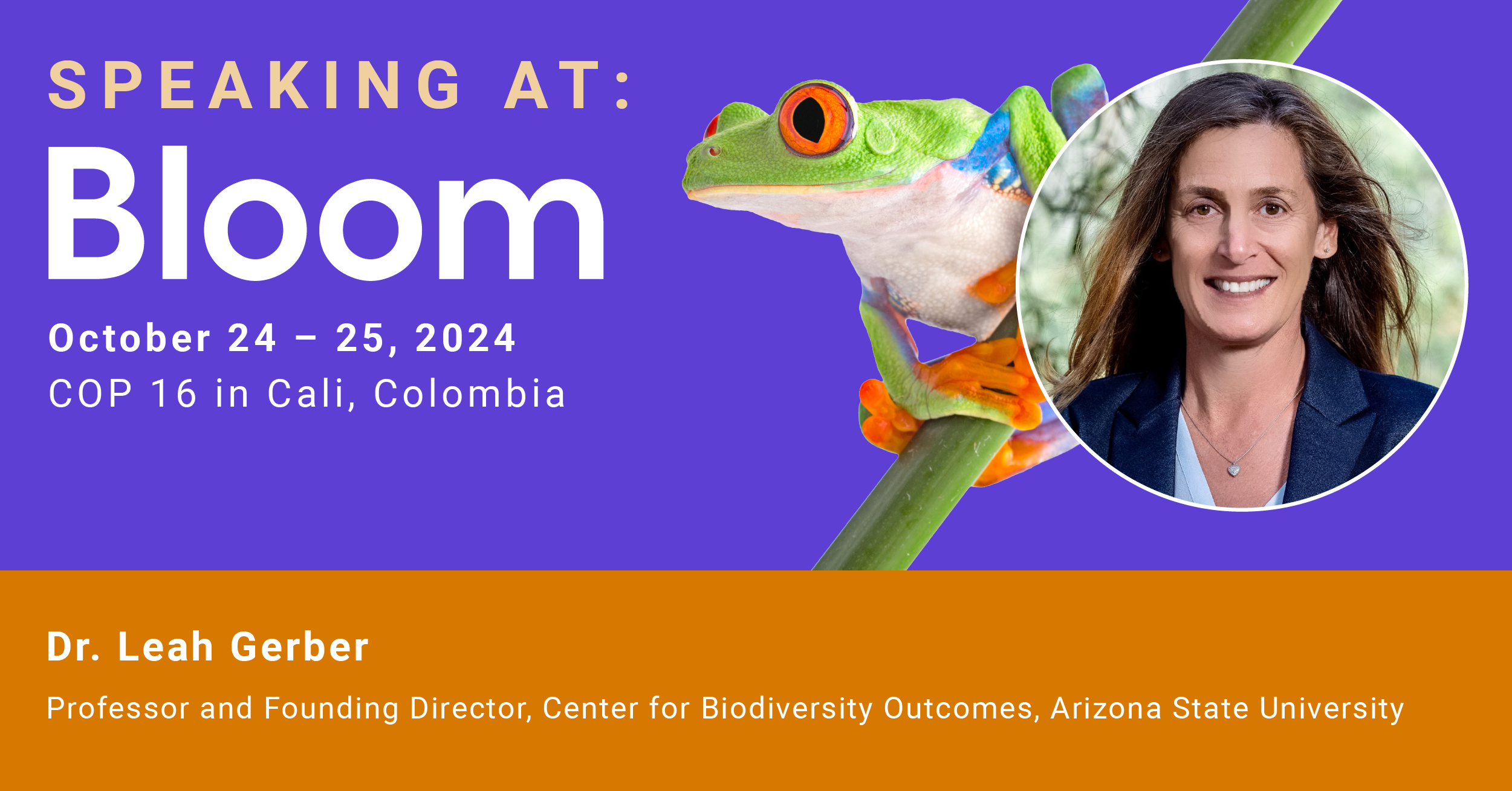Founding Director Leah Gerber had an amazing time at COP16 and Bloom 24 in Cali, Colombia! Leah spoke on the positive impact of mindfulness and self care when it comes to scientists feeling like “first responders” when addressing urgent ecological crises, delved into work on understanding the synergies between government initiatives and corporate strategies and how these partnerships can lead to sustainable and scalable outcomes for biodiversity, and shared examples of meaningful stakeholder engagement and social outcomes that balance local and global biodiversity goals.
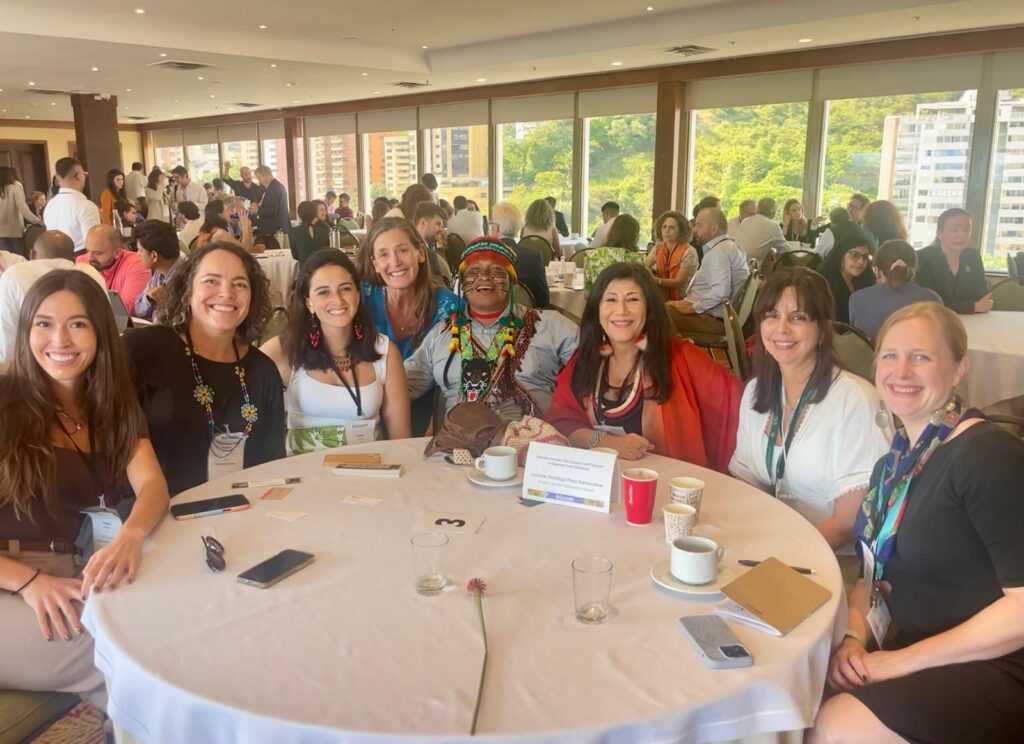
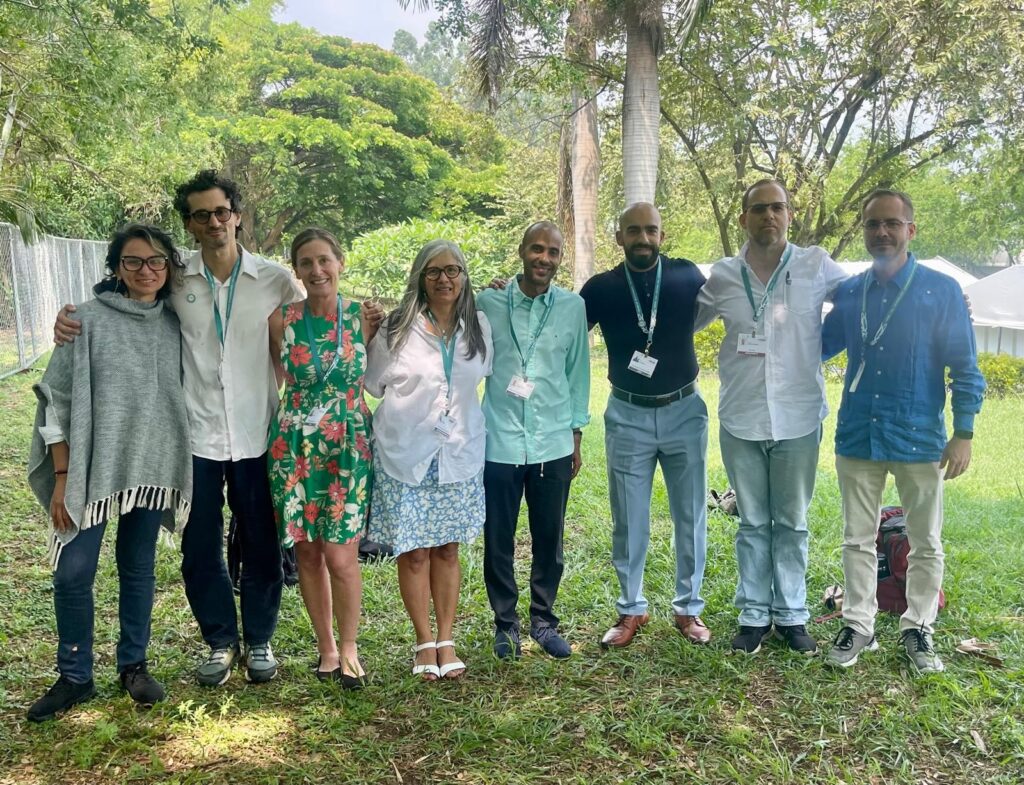
Bringing hope and gratitude in facing eco-anxiety (COP-16). In the face of the global biodiversity crisis, many have faced feelings of burnout and hopelessness as we act as “first responders” to ecological emergencies. Neuroscience shows that mindfulness can help build resilience, creativity, and better decision-making, offering a way to process the emotional toll of biodiversity loss. Our workshop aimed to empower participants to shift from a mindset of decline to one of possibility, using mindfulness to foster innovation and proactive solutions.

Beyond Target 15: Opportunities for Strategic Corporate Engagement (Bloom). A discussion about how corporations can align their conservation efforts with the Global Biodiversity Framework, with insights from Adriana Rivera-Brusatin of Colombia’s Ministry of Environment. Attendees learned about the synergies between corporate strategies and government initiatives that can lead to scalable and sustainable biodiversity outcomes. Plus, the Wildlife Habitat Council (WHC) launched their new white paper, “Beyond Target 15.”
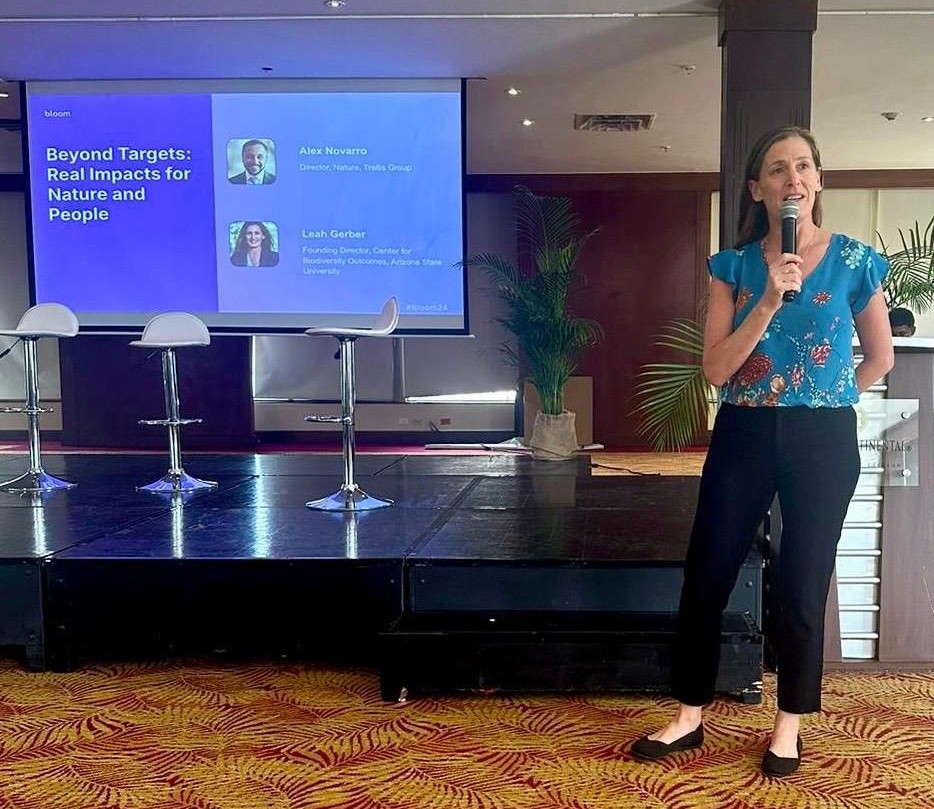
Going Beyond “No Harm” to Create a Regenerative Economy (Bloom). Leah was the headline speaker at this workshop for multinational corporations and financial institutions focused on investing in biodiversity restoration and recovery, exploring how the private sector can most effectively “bend the curve” of biodiversity loss and close the nature finance gap. She spoke about how businesses should ensure their nature strategies are science-based and achieve positive on-the-ground impacts. Through a series of facilitated small-group discussions and exercises, participants then engaged in discussions on the most promising conservation approaches, explored stakeholder engagement strategies, and examined case studies that help balance local and global biodiversity goals.
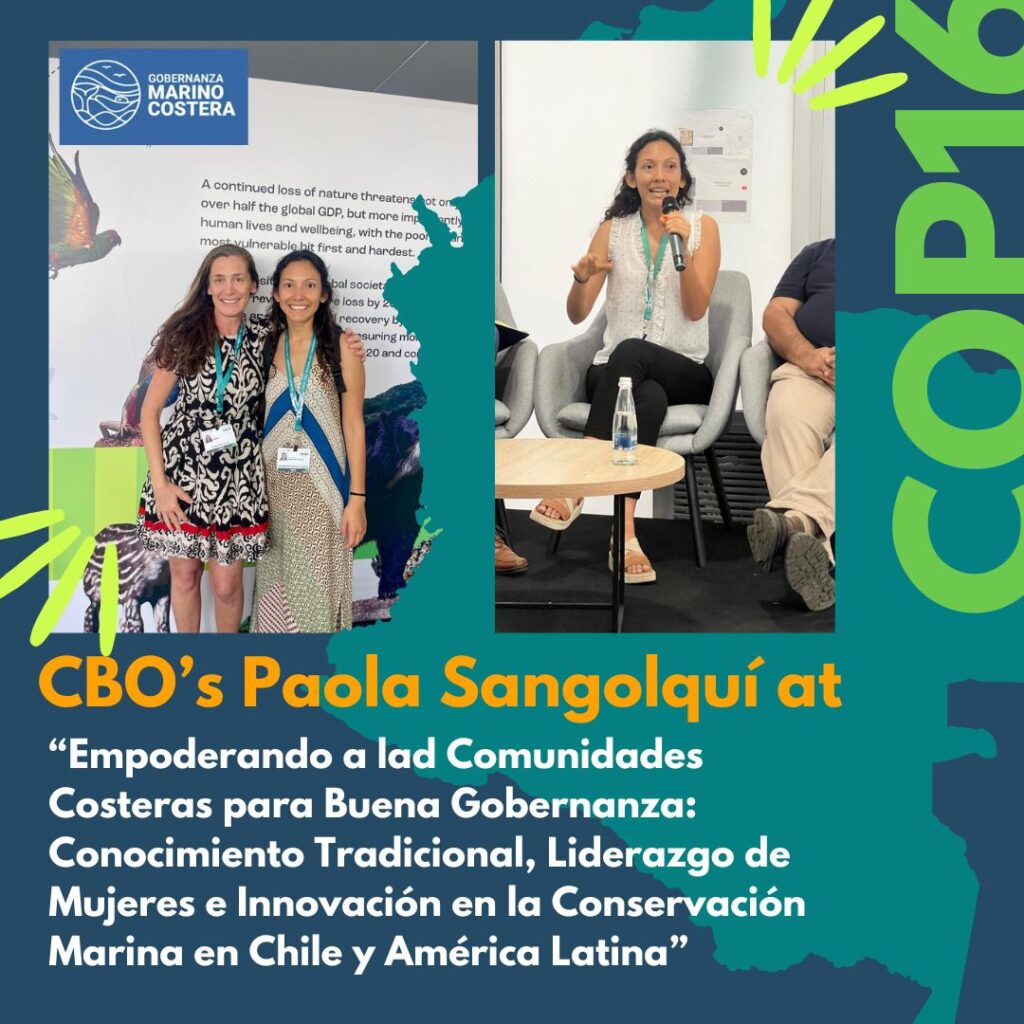
CBO PhD candidate Paola Sangolqui spoke on the “Empowering Coastal Communities for Good Governance: Traditional Knowledge, Women’s Leadership, and Innovation in Marine Conservation in Chile and Latin America” panel.
